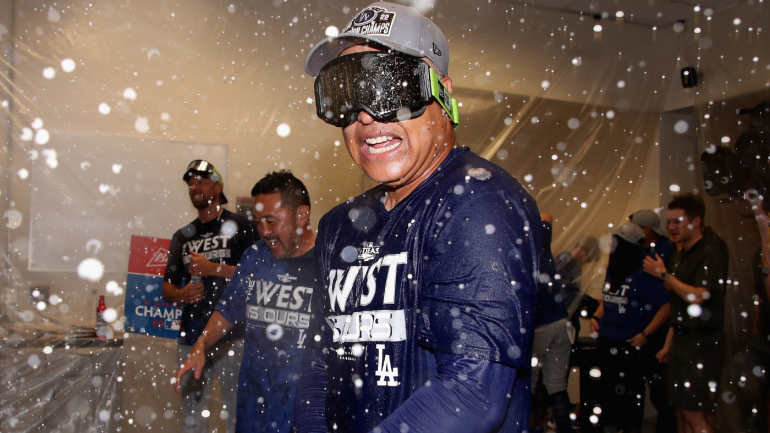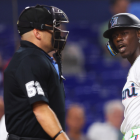
The Los Angeles Dodgers recently tied the franchise record for wins in a season with 106, and they'll soon break that record. They also may soon become just the seventh team in Major League Baseball history to win at least 110 games in a season.
What makes this doubly impressive is that the Dodgers have authored such greatness despite being one of the most injured teams in all of baseball this season. To date, the 2022 Dodgers placed 23 players on the injured list – many of them core contributors – for a combined total of 1,912 days lost to injury. That tally of days is the fourth-highest in MLB this season. All of this of course comes on the golden heels of a 2021 campaign that saw Dave Roberts' squadron win 106 games.
Speaking of 2021, the Dodgers last season failed to win the World Series, as the Atlanta Braves upset them in the National League Championship Series. Because the sport of baseball has so much built-in structural parity and you should always take the field against any single team when it comes to prevailing in the postseason, and the likelihood is that the Dodgers in 2022 will also fail to win the World Series. Nodding in collegial misery are the 2001 Mariners (owners of the most wins in a season) and the 1906 Cubs (owners of the highest winning percentage in a season). Neither of those teams wound up winning it all. That's just how baseball works across the tiny sample that is playoff baseball. Indeed, since the American and National League first teamed up to play the World Series in 1903, just 44.4 percent of the time (52 times out of 117 World Series through 2021) has the team with the best record in the regular season gone on to win the belt and the title.
This foul-smelling scribe back in 2016 declared within the pages of the Baseball Prospectus annual that it was time for MLB to recognize the singular marvel that is prevailing over the span of 162 games and award some kind of something to the team with the best regular season record. Motivated by the excellence of the 2022 Dodgers, he's now back and hankering to repeat himself. So here it goes: It's time for MLB to recognize the singular marvel that is prevailing over the span of 162 games and award some kind of something to the team with the best regular season record. It's an honor those teams deserve, and it's a celebration of the true nature of baseball. Back in that 2016 BP annual, I called it the Weaver Trophy for the legendary Orioles manager, but that sort of specific matters less than making it happen in some form or fashion. Call it the Dusty Baker Trophy or the World Heavyweight Championship, but above all just make it so.
A thoroughly predictable reaction to this is going to be something along the lines of, "We shouldn't reward teams until they win the World Series." (Note that this line of thinking doesn't seem to pop up when a team celebrates a division title.) Sure, that's one way to frame it, but another way – one I subscribe too – is that winning the World Series becomes an immediate stand-in for greatness even if said greatness was not proved across the six-month cauldron that is the regular season. Calling a team that couldn't crack even 90 wins from April through September "great" credits postseason baseball for doing something it can't truly do -- i.e., determine true baseball greatness. Sure, great teams often win the World Series, but they're great because of what they accomplished leading up to the playoffs. Winning the World Series after, say, a 100-win regular season is a burnishing of greatness already established. On the flip-side, nothing that happens in October can lead to, say, an 85-win team being thought of as genuinely great.
Postseason baseball constitutes a comparatively tiny sample of games, which leads to fluke-ish outcomes, and it doesn't demand the roster depth that is the hallmark of regular season greatness (see: Dodgers, 2022). Thanks to all the off days on the playoff calendar, the everyday-ness of baseball is lost. You can succeed by letting some pitcher throw a quarter of your innings (or more) in a critical series and leaning on only your top-end bullpen arms. You don't need to think about whether that scuffling star bat needs a day off to reset his mind and body. Your depth doesn't get tested and exposed the way it does across 162. That sprawl – that massive set of games that is unexampled among major team sports – and that, again, everyday-ness is the defining characteristic of baseball at the highest level. In October, all of that goes away, and we've all agreed to pretend it's more meaningful. We've agreed to pretend that winning 11 or 13 games in October is more impressive than winning 100 from April through September. It's not, I would argue, but the larger point is that there's room to recognize both accomplishments. And as recent models like the 2020 Dodgers, 2018 Red Sox and 2016 Cubs would hasten to remind us, it's also possible to win both.
Nothing's going to diminish winning the World Series. There's no such thing as a regular-season trophy that will beget a dog pile in the way the World Series trophy does, but that doesn't have to be the standard. Ever since the Bud Selig era, those in charge of baseball have urged the sport to run swiftly away from what it really is. That the playoffs have methodically grown and now almost ape the structure of the NFL postseason is but one example. So let's arrest that trend just a bit and recognize the doggedness required to stand above all after 162.






















